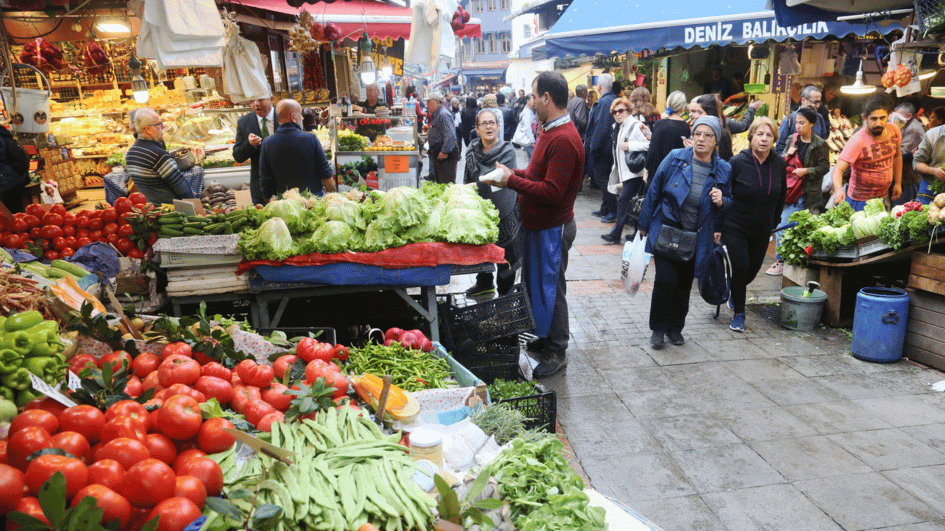$100 billion US – Turkey trade target, easier said than done
When you consider that only 33 percent of women participate in the workforce, you expect the Turkish panelists in the 10th investment conference organized last week in New York to be predominantly male. Yet, out of the four speakers on the second panel, three were women, representing some of America’s biggest companies.
Serra Akçaoğlu, chief executive officer of Citibank Turkey; Ayşem Sargın, managing director for Boeing; Canan Özsoy, CEO of GE in Turkey, and İhsan Neciboğlu, general manager for Turkey and Central Asia at Dow Chemical, talked about the potential in the country but also focused on how to boost trade and investment.
It was impressive especially to listen to Özsoy as she spoke about GE’s Research and Development (R&D) center in Turkey. Out of GE’s four R&D centers around the world, the one in Gebze near Istanbul hosts the youngest engineers with an average age of 30. Its workforce also is 28 percent women, while female employees account for about 9 percent of employees at the other three centers, according to Össoy.
Necipoğlu, on the other hand, explained how Dow Chemical’s search for at least five years for a partner around the world to produce carbon fiber ended with a joint venture with a Turkish company, the formation of which took less than a year.
Nearly two dozen agreements between Dow Chemical and Aksa were signed within just eight months, according to Necipoğlu. That clearly demonstrates the ability to act fast among Turkish companies but also shows how quickly synergy and cooperation can be established between a Turkish and an American company.
But that’s the half-full part of the glass. On the half empty part, there are too many discouraging factors that could make the glass look nearly empty, especially in terms of the current situation.
To start with, while the panelists were predominantly female, the audience was predominantly male, but more importantly, it was predominantly Turkish. In fact, I overheard many businessmen asking why the conference language was in English while there were only a handful of Americans in the room. Those few Americans who were present, however, could at least observe that while explaining Turkey’s potential, the Turkish executives tried to be as candid as possible in listing problems in the investment environment.
Özsoy summarized it as the four Ss: security, sustainability, standardization and simplification, while Sargın underlined the geopolitical risks that are harming the investment environment in Turkey.
Talking about earthquake prevention hours before the actual earthquake
But the most interesting intervention came from Necipoğlu. Carbon fiber is a key substance mainly used in the automotive, construction and aerospace industries. “Ninety-five percent of what we produce is exported; only 5 percent is sold in Turkey,” said Necipoğlu adding that Turkey was not using high technology.
Turkey’s infrastructure as well its buildings need to become earthquake resistant, said Necipoğlu, talking during midday on Sept 25. He could not have known that only 24 hours later, during midday on Sept. 26, Istanbul would be shaken by an earthquake of 5.8 magnitude.
Carbon fiber can be used in strengthening infrastructural facilities as well as buildings. It is more cost effective than demolishing and reconstructing, the current model endorsed by Turkey following the deadly 1999 earthquake.
But the market remains a closed one, underlined Necipoğlu. There is practically no ecosystem for modification and strengthening the existing structures, while the current system encourages the “demolish/reconstruct” option.
As an example, it is more difficult to get a credit if you want to strengthen your house compared with rebuilding from scrap.
Just as I am writing these lines, the Education Ministry was publishing the list of temporary schools where students from 29 damaged schools will continue their education. Temporary until when? Until schools are demolished and rebuilt? Wouldn’t it be faster if they were strengthened?
So even these examples show that while there is tremendous potential in Turkey, there are a lot of steps that need to be done for a more efficient investment and trade environment.
That was pretty much the message that I got from the investment conference, especially on the highly ambitious $100 billion target that requires strategic thinking, planning and implementation.
But as the Turkish president is committed to that target, this may facilitate access to the presidency that could help remove obstacles in front of a more lucrative business environment.











